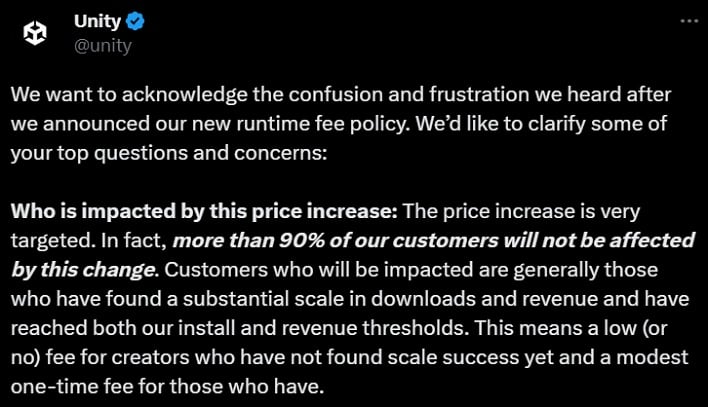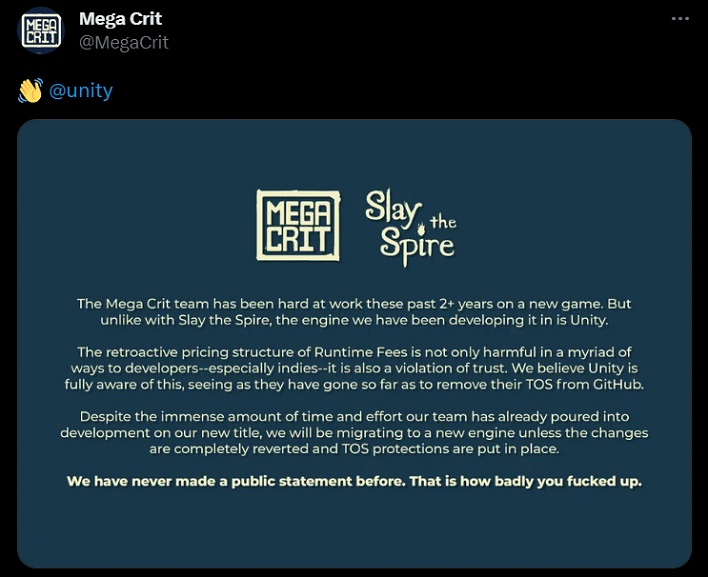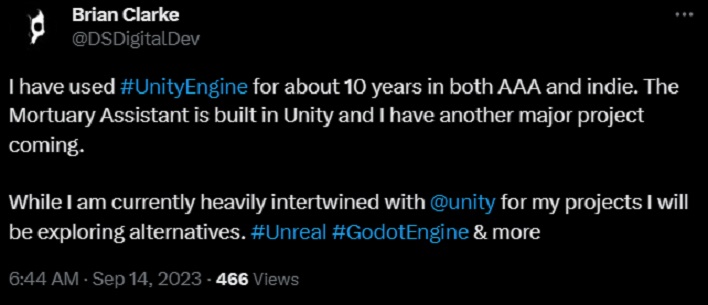Unity's Controversial Install Fees Have Game Developers Dropping F-Bombs
Unity is a well-known and widely used cross-platform game engine developed by Unity Technologies in 2005. The company's website touts itself as having a user-first mentality where the best ideas win. However, earlier this week, the company announced upcoming plans for its business model that have since garnered a great deal of ire from the users it says it puts first.
In a tweet, Unity confirmed that the upcoming changes would include a price increase, but it would only affect a small subset of Unity Editor users. It added that the developers who would be affected are already generating revenue that far exceeds the thresholds outlined in its announcement, and that small companies who are still growing their business would not pay a fee.
However, game developers like Mega Crit have expressed their disdain for Unity's new business model. In an official statement posted on X, Mega Crit remarked, "The retroactive pricing structure of Runtime Fee is not only harmful in a myriad of ways to developers--especially indies--it is also a violation of trust." The statement ended with a very emphatic response to Unity: "We have never made a public statement before. That is how badly you [Unity] fucked up."
Mega Crit is far from being alone in its disgust with Unity at the moment. Garry Newman, who founded Facepunch Studios in 2004, posted a statement on his blog site condemning Unity for its proposed changes. In the blog post "Unity can get fucked," Newman remarked, "Let me be clear.. the cost isn't a big issue to us. If everything worked out, the tracking was flawless and it was 10p per sale, no biggy really. If that's what it costs, then that's what it costs."
Newman continued, "But that's not why we're furious. It hurts because we didn't agree to this. We used the engine because you pay up front and then ship your product. We weren't told this was going to happen. We weren't warned. We weren't consulted."
The fury that has erupted in the wake of Unity's announcement has led many developers, such as Newman, to say they will no longer be utilizing the once highly popular gaming engine. Newman went on to add, "The trust is gone," while concluding, "Let's not make the same mistake again, Rust 2 definitely won't be a Unity game."
Brian Clarke, the independent game developer responsible for the horror-based Mortuary Assistant, echoed Newman's frustration in a tweet, remarking, "While I am currently heavily intertwined with @unity for my projects I will be exploring alternatives. #Unreal #GodotEngine & more".





